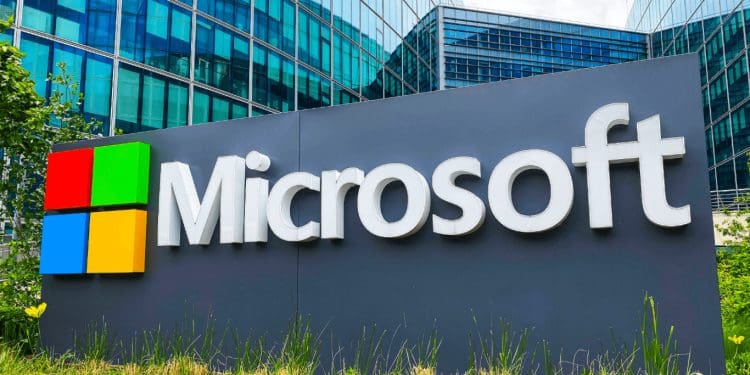- Microsoft says there will be no cloud mining without prior written approval.
- The giant tech company updates its universal licensing terms, joining other companies like Google, Oracle, etc..…
- Microsoft cites fraudulent possibilities as it bans crypto mining on its online services.
Microsoft, the world’s most prominent computer software agent, has quietly announced in its recent updates that it will no longer allow for the mining of cryptocurrency on its platform without prior written approval from the company.
On December 1, Microsoft quietly included the restriction into its updated Universal License Terms for Online Services. The document consists of any “Microsoft-hosted service which Customer subscribes under a Microsoft volume licensing agreement,” including its public cloud platform, Azure.
In the mega-company’s Summary of Changes, Microsoft asserts that “Updated Acceptable Use Policy to clarify that mining cryptocurrency is prohibited without prior Microsoft approval.”
Although the company barely leaves room for much detail about its recent update, it is clear that Microsoft will no longer permit crypto mining on its platform without a written pre-approval. Unfortunately, this update is general as all customers with access—premium or not—to Microsoft have been banned from mining cryptocurrency through its online services.
“Neither Customer nor those that access an Online Service through Customer may use an Online Service: to mine cryptocurrency without Microsoft’s prior written approval,” Microsoft mentions in a heading titled “Acceptable Use of Policy.”
The mega-company’s move is due to the recent phishing attacks in the crypto industry, leading to subsequent filings for bankruptcy by those affected. Microsoft published a blog post addressing its partners’ “need to take to secure the partner ecosystem.”
Among the listed methods to take in securing and administering the changes that will minimize potential fraud damage to customers, Microsoft states that its acceptable use policy “has been updated to prohibit mining for cryptocurrencies across all Microsoft Online Services explicitly.”
This update bans users from using Azure, Microsoft’s cloud platform, to produce crypto coins like Bitcoin (BTC) and many more. Azure offers crypto mining features based on various subscription prizes. Last year, Microsoft closed down its Azure Blockchain, built from a sandbox-style service in 2015 on Ethereum.
Microsoft needs to send more signals about its stance on cryptocurrency and blockchain technology. Brad Smith, the president of Microsoft, had said in 2021 that the company was not interested in delving into Bitcoin.
In its bid to better explain its reasons for banning crypto mining on its platform, Microsoft spoke to the media, expressing that its decision is because “Cryptocurrency mining can cause disruption or even impairment to Online Services and its users and can often be linked to cyber fraud and abuse attacks such as unauthorized access to and use of customer resources,”
This change in Microsoft’s operations is made to protect its users and “mitigate the risk of disrupting and impairing services in the Microsoft Cloud,” Microsoft had further elucidated.
However, in a brighter light, Microsoft mentions that permission to mine cryptocurrency may be granted only during Testing and Research for security examinations.
What is Cloud Mining?
Cloud mining is a method of mining cryptocurrencies such as Bitcoin (BTC) with the help of leased cloud computing power. Cloud mining requires no installation of hardware and related software.
To this, cloud mining companies like Microsoft enable users to remotely create an account and operate on its platform by mining cryptocurrencies at a required cost. Cloud mining is widely encouraged because it allows crypto enthusiasts to self-mine crypto.
Microsoft is one of many big-tech companies to ban cloud crypto mining on its platform. The computing software company also joins Google, Oracle, and the free tier on Amazon Web Services.
Mining Malware on Microsoft
The world’s leading computing software company, Microsoft, had earlier disseminated a warning to its customers, announcing that a malware program created to mine crypto could remove security measures, steal passwords, spread via emails, and remove more features developed for human-operated activity.
Microsoft had called the crypto mining malware “LemonDuck,” saying it was built to infect computers running on Linux and Windows, and it had spread through most countries in the world through brute force attacks, phishing emails, and USB devices.
Conclusion
Effective immediately on December 1, Microsoft updated its Acceptable Use of Policy under its Summary of Changes, stating that it will no longer support the mining of cryptocurrencies on its cloud platform, Azure. The news quietly slipped into its updated universal license terms.














